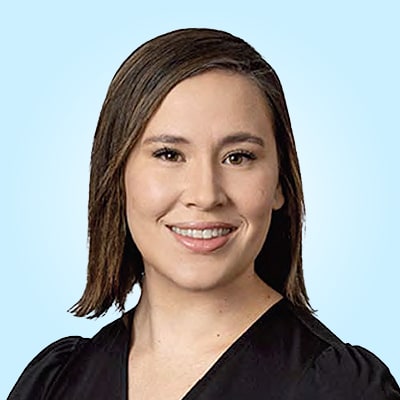What separates a passable legal brief from one that wins the case? In “The Lawyer’s Guide to Impactful Writing: An Overview From Introduction to Conclusion,” attorneys Michael Alfera and Erica Jansson deliver an engaging and practical masterclass on how to elevate your legal writing from competent to compelling. Using the four stages of the Betty Flowers framework of “Madman, Architect, Carpenter, Judge” as guideposts, this seminar unpacks the hidden stages of the writing process that many attorneys overlook. Alfera and Jansson will also cover paragraph-level and sentence-level editing techniques, walking you through the process with real-life examples. Whether you’re drafting a mediation statement or an appellate brief, you'll come away with tools to sharpen your arguments, streamline your prose, and deliver your message with clarity, urgency, and force.
- Welcome and Introduction
- Overview of presenters and program goals
- Stages of Legal Writing and Overcoming Writer’s Block
- Exploring the Betty Flowers model: Madman, Architect, Carpenter, and Judge
- Discussion of writing as a process and how to overcome writers’ block from a process-based perspective
- Considerations for busy practitioners
- Understanding Your Audience and Common Judicial Pet Peeves
- Tailoring your writing to your audience (judge, law clerk, and client)
- Recognizing common frustrations and practical insights
- Best Practices for Creating Memorable Themes
- How to develop a theme that guides structure and leaves a lasting impression
- Use of ethos, pathos, and logos
- Point Headings and Table of Contents
- Crafting effective point headings
- Leveraging the table of contents to your advantage
- Dos and don’ts of point headings, with examples
- Crafting Effective Introductions
- Examples and principles for clear, persuasive opening paragraphs in motions and briefs
- Structural Tool
- Roadmap/”umbrella” paragraphs
- Narrative framing
- Additional Tips
- Citation hygiene
- Principles for paragraph and sentence-level clarity
- Q&A and Wrap-Up (as time permits)
This webinar is divided into section summaries, which you can scan for key points and then dive into the sections that interest you the most.
Please note this AI-generated summary provides a general overview of the webinar but may not capture all details, nuances, or the exact words of the speaker. For complete accuracy, please refer to the original webinar recording.

Gibson, Dunn & Crutcher
Erica L. Jansson is a litigation associate in the Los Angeles office of Gibson, Dunn & Crutcher. She rejoined the firm in 2023 after serving as a judicial clerk to the Honorable Philip S. Gutierrez of the United States District Court for the Central District of California. Read More ›

Weinberg Gonser LLP
Michael Alfera is a litigation attorney who excels in devising winning arguments and case strategies for clients involved in business and commercial disputes on both sides of the ‘v.‘ Prior to working in private practice, he worked as a judicial law clerk, first for the Los Angeles Superior Court and then for the Honorable Otis D. Wright II, District Judge in the District Court for the Central District of California. Working in the supporting role for multiple judges fostered Michael’s ability to analyze cases from a judicial standpoint and to write with authority and persuasion. Read More ›
*CLE credit is only available to Justia Connect Pros. Not a Pro? Upgrade today>>
Status: Approved
Credits: 2.00 General
Earn Credit Until: June 30, 2026
Status: Approved
Credits: 2.00 General
Earn Credit Until: February 28, 2026
Status: Approved
Credits: 2.00 General
Earn Credit Until: June 30, 2026
This presentation is approved for two hours of General CLE credit in California, and North Carolina. This course has been approved for Minimum Continuing Legal Education credit by the State Bar of Texas Committee on MCLE in the amount of 2.00 credit hours.
Justia only reports attendance in jurisdictions in which a particular Justia CLE Webinar is officially accredited. Lawyers may need to self-submit their certificates for CLE credit in jurisdictions not listed above.
Note that CLE credit, including partial credit, cannot be earned outside of the relevant accreditation period. To earn credit for a course, a lawyer must watch the entire course within the relevant accreditation period. Lawyers who have viewed a presentation multiple times may not be able to claim credit in their jurisdiction more than once. Justia reserves the right, at its discretion, to grant an attendee partial or no credit, in accordance with viewing duration and other methods of verifying course completion.
At this time, Justia only offers CLE courses officially accredited in certain states. Lawyers may generate a generic attendance certificate to self-submit credit in their own jurisdiction, but Justia does not guarantee that lawyers will receive their desired CLE credit through the self-submission or reciprocity process.


